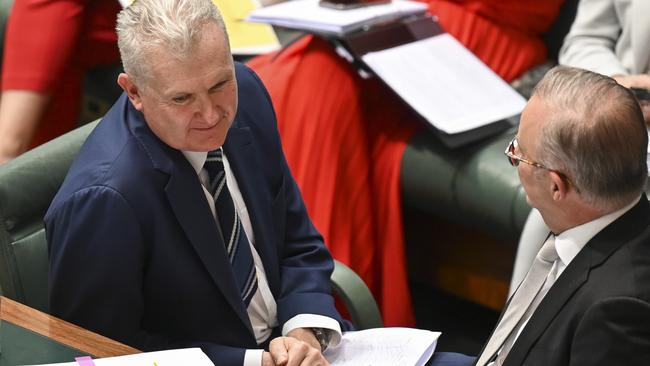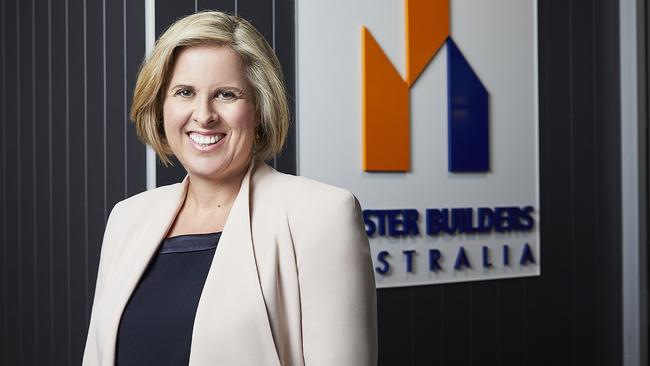IR win for builders, as PM’s 1.2m new homes target under pressure
Tony Burke delivers win for tradies in Labor’s IR shake-up, as Anthony Albanese faces pressure to ease constraints on construction firms to build 1.2 million new homes in five years.

Tony Burke has delivered a win for tradies in Labor’s industrial relations shake-up, as the government faces pressure to ease constraints on construction firms that Anthony Albanese needs in order to build 1.2 million new homes in five years.
The Workplace Relations Minister, who banned Master Builders chief executive Denita Wawn from a meeting with unions and business in June last year, granted an exemption for some construction businesses under Labor’s definition of employment overhaul.
Ms Wawn, who sits on the Cbus Super board alongside former Labor treasurer Wayne Swan, told The Australian the building sector won a last-minute concession from the government after securing backing from crossbenchers David Pocock and Jacqui Lambie.
Despite the win, Ms Wawn said the MBA had “significant problems” with IR reforms introduced over the past 18 months.
After banning Ms Wawn from the IR meeting last year, Mr Burke said she was “incapable of working within the consultation processes of the previous government, let alone ours”.
Ms Wawn, who joined forces with big and small business, miners and farmers in campaigning against Labor’s union-backed IR agenda, said the MBA “appreciates the fact that those crossbenchers and the government recognised that it was going to hamper our capacity”.
“I’m acutely aware that you’ve got to play the politics. In this instance, what was the best for this country was able to be achieved in enabling us what we need to do around housing,” Ms Wawn said.
In its pre-budget submission released on Monday, the MBA warns against touching negative gearing or taxing primary residences, slams IR changes as “draconian” and pushes for recognition of international qualifications and fast-tracking of tradespeople visas.
The submission urges faster action on planning reforms across governments to lift building activity and deliver the Prime Minister’s “must-do” 1.2 million homes in five years from mid-2024.
Making-up more than 278,000 of Australia’s estimated 1.1 million independent contractors, the construction sector raised concerns that the definitions of employment changes were “effectively going to push a lot of the independent contractors into employment arrangements”.
Ms Wawn said that would have “totally pulled apart the whole subcontracting environment that we operate in”.
Representing a sector boasting 440,000 businesses and 1.3 million employees, Ms Wawn said a large swath of independent contractors were “younger ones trying to build up their own business”.
“They are people that will do a lot of their work with the same head contractor. Between 50 to 70 per cent of their work will be with the same head contractor but then they’ll do a series of jobs on the side as well,” she said.

“The test that was going to apply to them would have forced them to be an employee of that head contractor. We went around the country and it was very clear they wanted to be their own boss.
“They wanted to say to the head contractor, this is when we’re going to work, this is how we’re going to work, and they don’t want to be an employee. This is not just about the small start-ups, this is about well-established independent contractors that will do a number of homes or renovations.”
Ms Wawn, who attended a meeting with business leaders called by Mr Burke in Sydney days before the government won crossbench support to push its Closing Loopholes IR bill through parliament, said Senator Pocock and the Jacqui Lambie Network backed an amendment “carving-out” builders who didn’t want to be employees of larger firms.
The Australian last month revealed a massive surge in construction firms falling into insolvency.






To join the conversation, please log in. Don't have an account? Register
Join the conversation, you are commenting as Logout